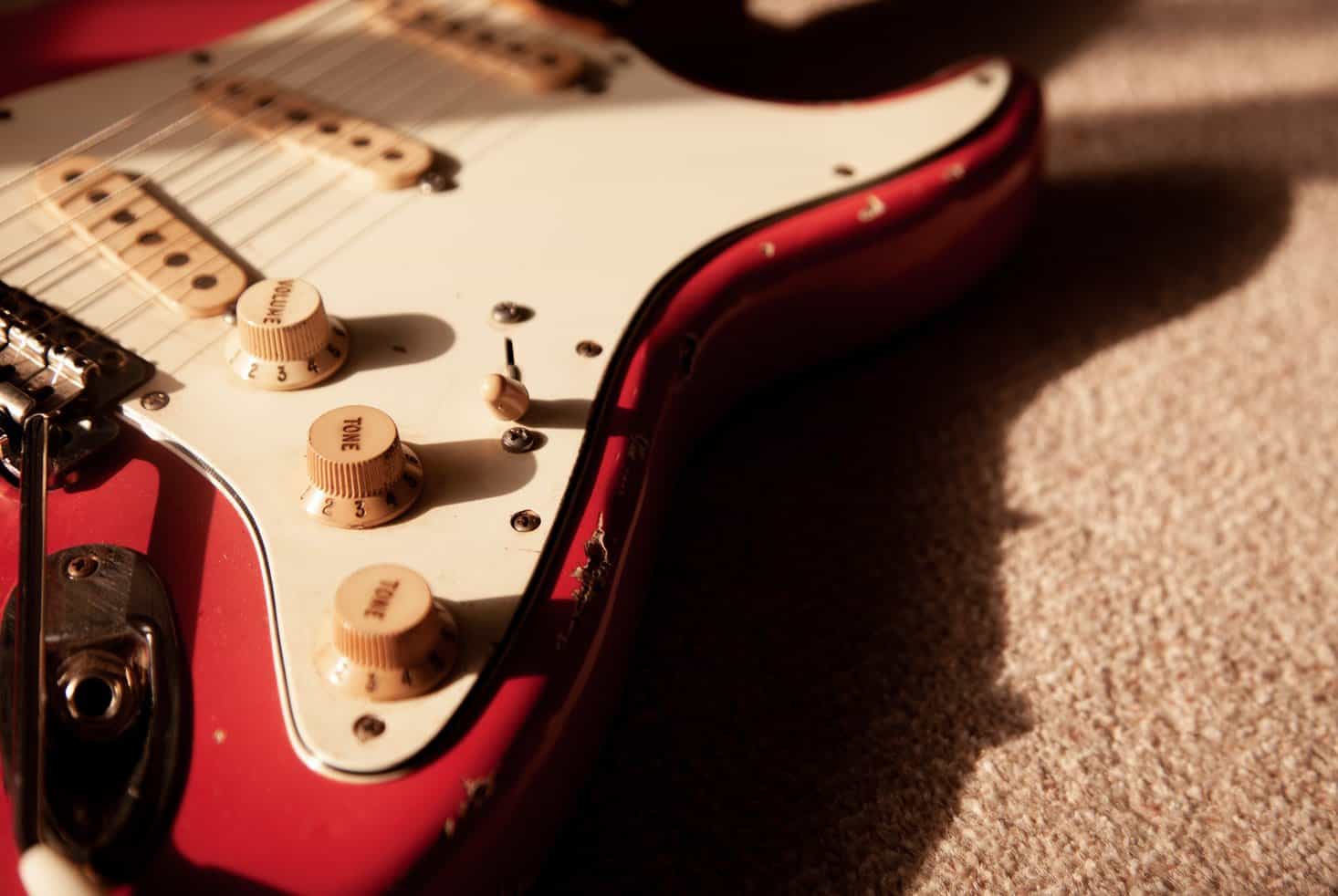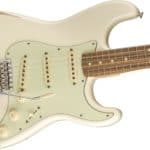Guitars are meant to be played, let’s not argue that.
And a heavily used instrument, with the years, will earn some battle scars.
For some that’s something terrible, for others of us is something beautiful.
But when a heavily battered guitar comes through the studio door and just sings with a beautiful tone, many of those present start speculating:
Do relic guitars actually sound better?
Well, here’s a short answer about that:
Relic guitars are unlikely to sound better than a perfectly preserved version of the same instrument. However, since that comparison is impossible to do, due that there are no 2 identical guitars, many players believe that the exposed wood and thinner, worn finish, might make the instrument more resonant.
In this article, I will tell you all I know about relic guitars and how they sound.
After leaving this page you will have a clearer idea about what makes these instruments special, and what are the things that might affect their tone, in comparison to regular shiny new ones.
Are you ready to get started?
Let’s go!
What is a relic guitar?
A relic guitar is a rather new instrument that has been cosmetically worn out to look like a vintage one.
The process of relic’ing a guitar varies from builder to builder, but it mainly consists of scratching, sanding, and mistreating all parts that comprise the instrument, until they look like they have been on the road for 50 years (or the amount reasonable for that model).
For many purists, relics are just a mimic and should not be taken seriously, but for many others, they are a form of art and their go-to kind of instrument.
From the slightest relic job of a few scratches to a heavy color-over-color strat that looks as if it just has arrived from a vacation in a warzone, alternatives and endless, and in the last decade or 2, there has been a strong demand for instruments with these finishes.
Do relic guitars sound actually better?
There is an age-old discussion about if relic guitars do actually sound better.
Relic guitars have no reason to sound particularly different than an “untreated” version of the same instrument, the problem is that no “unrelic’d” version of that instrument would ever exist to make a fair comparison.
There are no 2 identical guitars, as I describe in the following article:
So this leaves us with no scientific discussion possible.
But, just for the sake of it, let’s discuss what is the factor that could affect the tone of a relic guitar, even improving it.
This is the way big chunks of the instrument are removed or sanded down to a very thin layer.
Many people will argue that stripping a guitar from its paint coat will make it sound more open and more resonant.
I will not argue against that, but I will say that, although possible, the effect should be minimal.
Especially when talking about nitro finishes.
For poly finishes, the story could be completely different since they are thicker and duller.
If you are interested in reading about how paint could affect the sound of your guitar, here’s another article I wrote on that:
Finally, something important to mention is that touch could be the sense that’s making all of us believe relics sound better.
You see, a sanded-down neck could make the guitar more playable, and a coarser feel on the body than glossy paint might make us feel the whole instrument as more resonant.
As I mentioned, I can’t give you the final and absolute truth about it all, but these are all things you should consider and try out by yourself when playing a guitar like these.
Do relic guitars sound the same as vintage guitars?
Relic guitars could sound rather close to vintage guitars, but this is not because of the treatment their finishes have received, but instead to the fact that they are usually built with vintage specs.
It’s important to highlight that not all relic guitars have vintage features, but many of them do.
Naturally, when building a guitar that will look as if it’s older than both of us, makers usually go for historically correct specifications to make the whole package more realistic.
Have you ever seen a relic’ed PRS?
Do you think it would sound more “vintage”?
I don’t think so.
Is paint a defining factor for tone?
Paint could be a defining factor for a guitar’s tone, although I wouldn’t consider it among the main ones such as tonewoods, pickups, or construction type.
Different finishes, however, have different thicknesses and it’s reasonable to believe that a thin nitro finish will allow for the instrument to be slightly more resonant than a thicker poly finish.
Will you get a sound improvement if you relic your guitar?
It’s very unlikely that you will perceive any tonal improvement from relic’ing your guitar.
The relic process is really not about tone.
I would rather not put my instrument through such a traumatic battery of mistreatments only because of a search for tone.
There are cheaper (compared to what a professional builder specialized in relics could charge) and easier upgrades to try out like a new set of pickups, or a better nut.
What’s the point of relic guitars?
There’s really not a point for relic guitars.
It is what it is.
And for many of us, they look beautiful.
Does anything else matter?
Of course, we would like to have an original vintage instrument that looks like that naturally, but the price at which you could find them does not help.
And, also, custom-built guitars with a unique relic pattern will be even a better fit for many players that prefer certain specs, maybe not original for that particular model.
That’s also fine.
Even if you are a purist, isn’t it better for someone that wants a slightly modified vintage-looking instrument to get it built from scratch than getting a real vintage one and sacrilegiously modifying it?
How would you feel if those relic’d Floyd Rose fat strats from the custom shop were actually vintage instruments?

Hello there, my name is Ramiro and I’ve been playing guitar for almost 20 years. I’m obsessed with everything gear-related and I thought it might be worth sharing it. From guitars, pedals, amps, and synths to studio gear and production tips, I hope you find what I post here useful, and I’ll try my best to keep it entertaining also.





